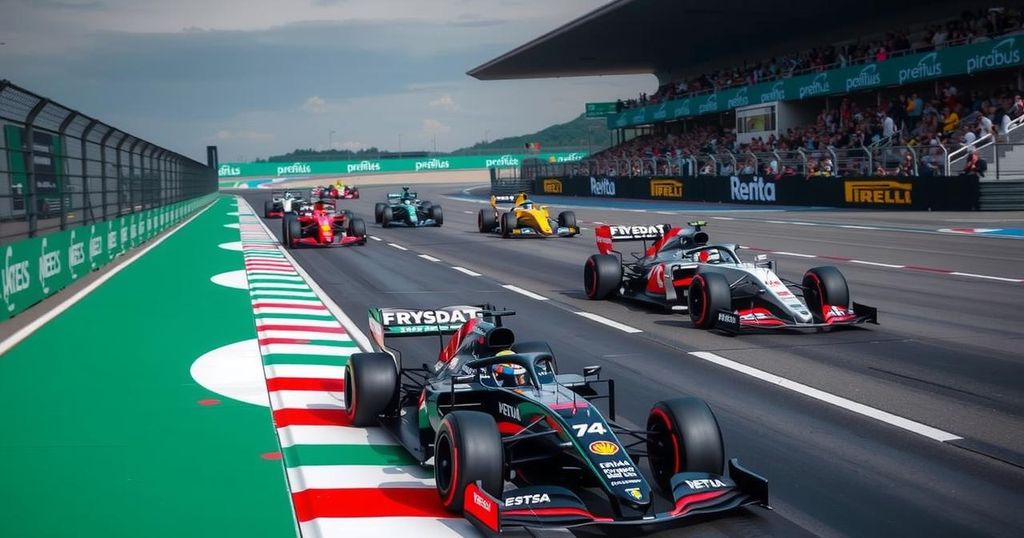TV Broadcasting Agreements Under Scrutiny as Brazilian GP Concludes Formula 1’s Americas Series

The Brazilian Grand Prix marks the close of F1’s Americas triple-header amidst uncertainties in broadcasting deals for both Brazil and the United States. Key issues involve Band’s financial struggles regarding its F1 rights and Globo’s potential for a future broadcasting deal in Brazil. Meanwhile, in the U.S., ESPN faces competition as F1’s popularity grows, possibly affecting renewal negotiations through 2026.
As the Brazilian Grand Prix approaches, concluding a thrilling trio of Formula 1 races in the Americas, critical uncertainties linger regarding broadcasting contracts in major markets such as Brazil and the United States. Following Ferrari’s remarkable victory in Mexico, the excitement surrounding the F1 championship remains palpable, yet recent developments suggest potential volatility in the distribution of F1 content in these regions. In Brazil, the broadcasting landscape is significantly influenced by the fate of promising driver Gabriel Bortoleto, who is currently leading the Formula 2 championship. His potential move to Sauber next year could spark increased interest among Brazilian fans, a development that may impact viewer engagement and broadcast rights negotiations. Presently, the Brazilian network Band holds a contract extending until 2025 but has encountered financial difficulties, prompting considerations for renegotiation or even contract termination, although such termination appears costly. Band has expressed intent to adhere to the existing contract, highlighting the potential profitability should Bortoleto secure a seat in F1. Simultaneously, Globo, Brazil’s premier commercial network, has made its intentions known regarding F1 broadcasting. It is rumored that an agreement with Liberty Media has already been established for a future deal post-2025, contingent upon the resolution of Band’s contractual obligations. In the United States, Formula 1’s surge in popularity has also drawn scrutiny regarding broadcast agreements. ESPN, having re-entered the F1 broadcasting realm in 2018, commands a significantly higher fee under its current contract that extends through 2025, demonstrating the rising demand for F1 content. While ratings soared in 2022, the future of the contract remains uncertain, with knowledgeable sources estimating an even chance of ESPN renewing versus another network competing for rights in 2026. F1’s growth in the U.S. market hints at the potential for record-breaking broadcasting fees in subsequent agreements.
The broadcasting rights for Formula 1 in Brazil and the United States are entering a crucial phase as contracts are set to expire or renegotiate within the next few years. The key players in this arena include the Brazilian network Band, struggling with financial obligations, and Globo, a seasoned network poised to reclaim F1 rights. In the U.S., ESPN has seen increased interest and viewer ratings but faces the possibility of new competitors emerging to secure F1 broadcasting rights. The outcomes of these negotiations will significantly affect the accessibility of F1 to fans in both Brazil and the U.S., particularly as interest grows due to emerging drivers and exciting championships.
As the Brazilian GP concludes the Americas triple-header, the landscape of F1 broadcasting faces impending changes that could influence both fan engagement and revenue streams. In Brazil, the situation involves Band’s ongoing struggle to maintain broadcasting rights against the backdrop of Globo’s ambitions. Concurrently, in the United States, the strong demand for F1 content complicates the renewal prospects with ESPN amidst a competitive broadcasting environment. The next few years will be pivotal for maintaining and expanding F1’s fanbase through effective television agreements.
Original Source: www.autosport.com






